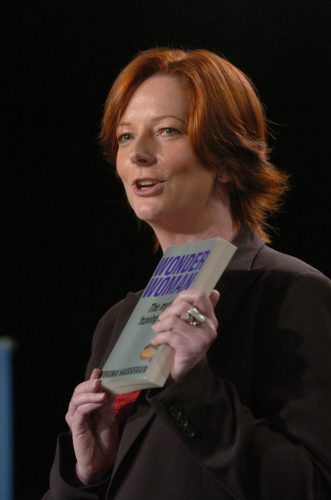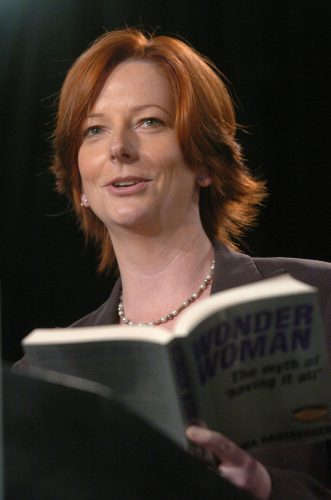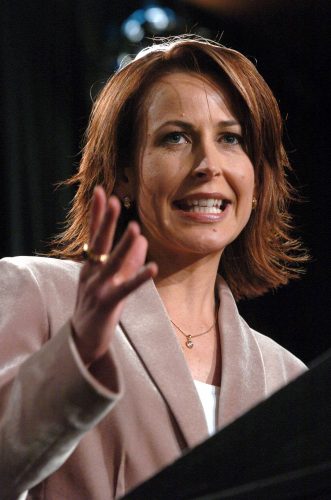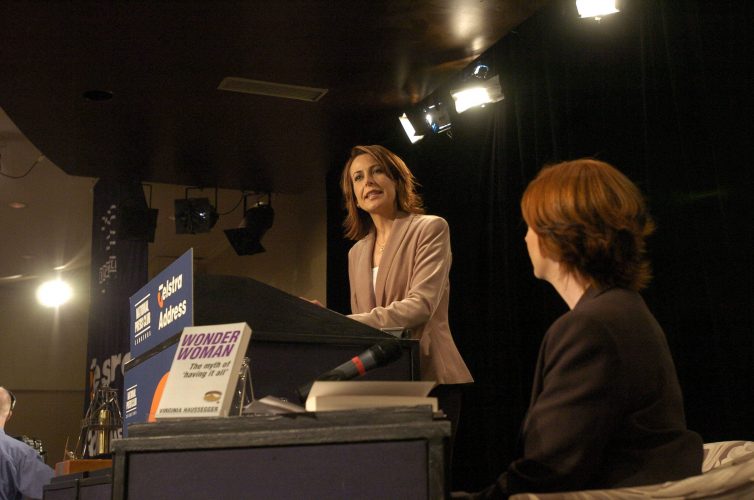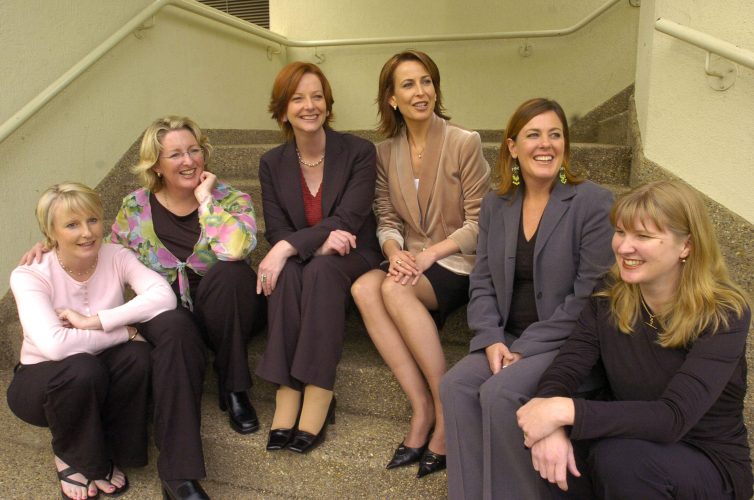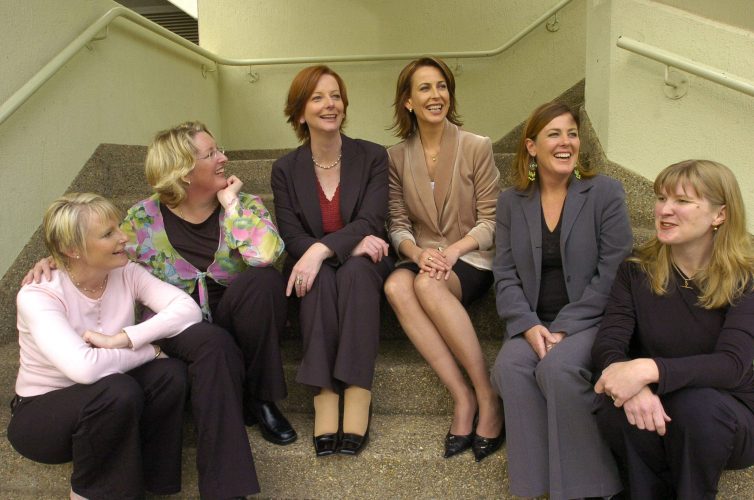What is a 13-year-old daughter worth? For Khorsheed, a desperate Afghan mother, the meagre sum of $US670 seemed sadly acceptable. She has six kids to feed and a missing husband, so when an older man wanted the teenager as his new “bride”, the maths seemed to make sense. She’s now reluctantly thinking of selling her 10-year-old, too.
But the 34-year-old mum is wavering. Her younger daughter, she says, went “all the way to the fifth grade”, which Khorsheed believes gives her sufficient reading and writing skills to earn an income: “I have a hope that this daughter will become something, and she will support the family.”
Foolish? Fanciful? Of course. But who can blame her? After all, we’ve just spent two decades encouraging these women to dream big.
Now, one year after the chaotic exit of all foreign forces from Afghanistan, the most likely future for that 10-year-old is a life of poverty, sexual and physical abuse, and multiple unwanted pregnancies. Once she hits 12, there will be no more school.
On the first anniversary of the fall of Afghanistan to the maniacally misogynistic Taliban, Amnesty International has summed up the lives of women and girls in the title of its recent report: Death in slow motion. It’s a shocking read, detailing how the Taliban has systematically “decimated the rights of women and girls”. Khorsheed’s secret testimony is just one of many.
The rates of early and forced marriage have “skyrocketed” in a nation where “rates of child, early and forced marriage were already some of the highest in the world”. A recent rapid assessment survey of families in three of Afghanistan’s north-western provinces found “nearly one third were on the verge of forcing their daughters into marriage.”

Nazi Gul sold off her seven-year-old for US$450, telling researchers that her daughter was too young to understand that she was married now: “When they took her the first time, she didn’t cry.”
According to the UN, 95 per cent of Afghans do not have enough to eat. Amnesty says the lethal brew of “a patriarchal government, war, poverty, drought and girls out of school” has made Afghanistan “a perfect storm for child marriage”.
But this is not marriage, as much as religiously sanctified rape, abuse and the emotional torture of an entire nation’s female population. Yet, as the first foreign power to pack up our embassy and pull out of Afghanistan, Australia stands limply by. Useless in protest.
What fools believed Taliban spokesperson Zabihullah Mujahid when he told international media last August, “women will be afforded all their rights whether it is work or other activities … we guarantee all their rights within the limits of Islam”?

Those “limits” proved to be little short of home-based imprisonment. The litany of new restrictions on females – once unimaginable – now entrench a level of state-sanctioned gender apartheid, worse than anywhere else in the world.
Girls are banned from secondary school, female segregation and harassment is making university studies intolerable, women’s employment remains forbidden except in limited health and primary school roles, female faces are banned from public view and virtue police trawl the streets looking for women unaccompanied by a mahram – male relative.
In short, Afghanistan’s women and girls have been sent home to rot.
“What can I do with my life inside my house?” asks 17-year-old Fawzia.
The latest Taliban nail in the coffin of female waste is an edict that makes men wholly responsible for their women’s modesty and virtue. If she fails to fully cover her face, or accidentally flashes an illicit ankle or body part, a woman’s male guardian is publicly thrashed.
As pointed out in a recent paper by academics Jacqui True and Farkhondeh Akbari of Monash University’s Centre for Gender, Peace and Security, by giving men direct authority over women’s dress, behaviour and livelihoods, the Taliban has further enshrined “men’s power over women in the family household”.
They argue that none of this is haphazard. It is, in fact, systemic, methodical and deeply ideologically driven: “After a year of diplomatic engagement, the Taliban has made no compromises. Instead, it has tightened its grip on patriarchal power.”
It was galling to hear the Taliban decry the recent US drone assassination of al-Qaeda leader Ayman al-Zawahiri, at his home in Kabul, as a “clear violation of international principles and the Doha Agreement.″
The February 2020 Doha agreement between the US and the Taliban laid out the conditions under which the US would leave Afghanistan, handing back control to the Taliban. It is what has led to where we are today. Despite George Bush’s 2001 war cry to free the women of Afghanistan, and the billions of dollars of foreign aid poured into educating and empowering women and girls over the past 20 years, when it came to the final exit deal, women didn’t rate a single mention. Instead, Afghanistan’s 15 million females were the unspoken, expendable, tradable commodity.
The “international principle” of the fundamental human rights of women and girls are not only breached by the Taliban, but actively defied. Mocked.
While nations such as Australia continue to look away, we make monstrous mockery of the UN’s Women, Peace and Security agenda and its 10 Security Council Resolutions that we claim to endorse. Such hypocrisy in international diplomacy is circular. But right now, as Amnesty’s horror report lays bare, the stakes could not be higher: “If the international community fails to act, it will abandon millions of women and girls across Afghanistan and embolden others to undermine the human rights of women and girls around the world.”
Wilful blindness at this critical juncture gives succour to growing breeds of anti-women extremists, on a fundamentalist march across the globe. Our ongoing silence serves to strengthen those forces.
As Australian women know only too well, raising a voice against misogynist power takes enormous courage. But the echo has the power to build a whole new generation of resistance.
This Opinion Editorial was first published in the Sydney Morning Herald, 15 August 2022

